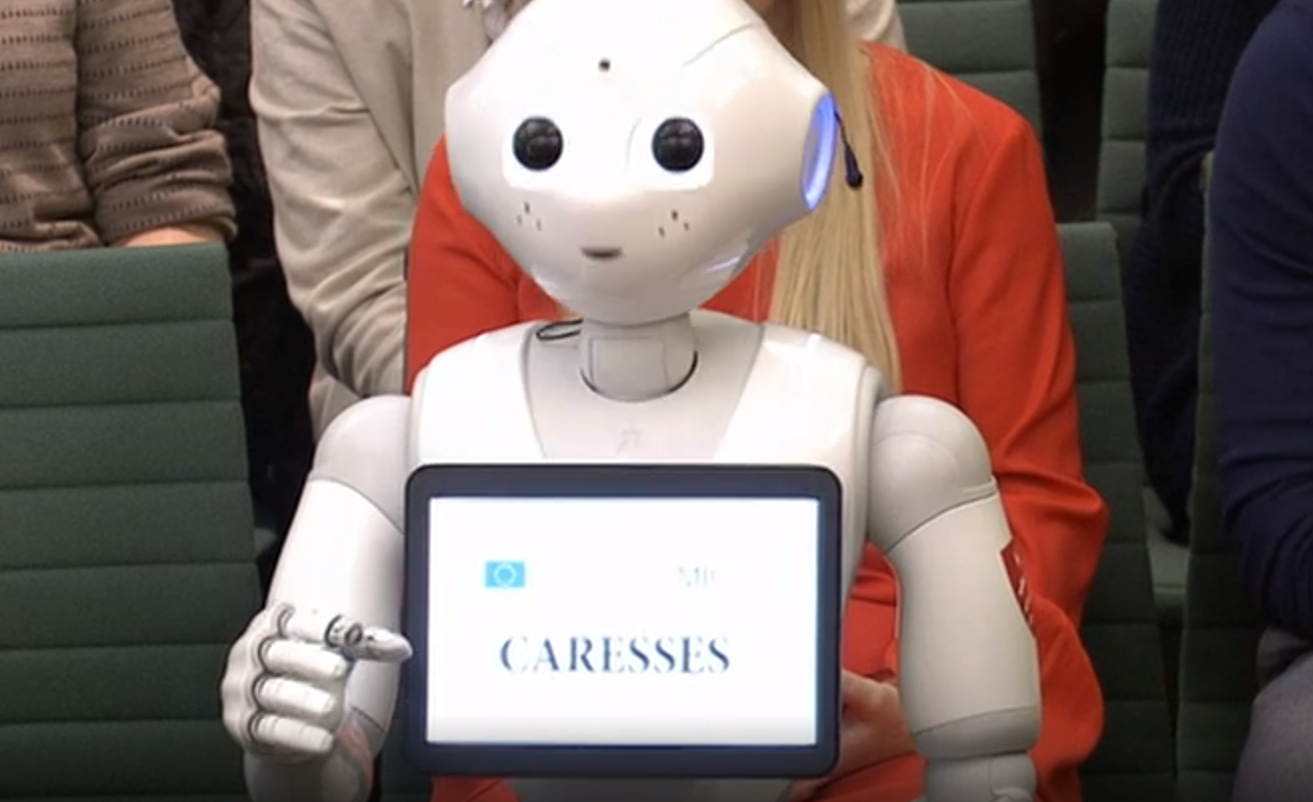AI could transform care for older people, robot tells MPs

A House of Commons committee questioned a humanoid robot, Pepper, to see how artificial intelligence (AI) and robotics can be used to help care for older people.
Pepper is currently based at Middlesex University and works with final year students on robotics, psychology, biomedicine and education.
An identical robot with different programming is also part of a three-year international research project called Caresses, which is developing the world’s first culturally aware robots aimed at assisting with care for older people.
Pepper told the education select committee that the service could cut costs for caring for older people, as well as helping with issues such as loneliness.
Pepper said: “Assistive intelligent robots for older people could relieve pressure on hospitals and care homes as well as improve the care delivery at home and promote independent living for the elderly people.”
SoftBank, the firm behind Pepper, claims that the humanoid is capable of ‘understanding and reacting to main human emotions’.
It states: “Pepper is well equipped with features and a high level interface for communicating with those around him. Pepper analyses expressions and voice tones using the latest advances in voice recognition.”
According to a report by the BBC, Pepper is used by students on a series of projects, including: helping children with special needs improve their numeracy, caring for older people and attending STEM (science, technology, engineering, and mathematics) fairs and conferences.
The committee also reportedly concurred that the current educational system needed to change drastically to accommodate the pace of technological change.
Healthcare is already making strides when it comes to AI, which is used increasingly to help with diagnosis and accuracy.
Patients can check their symptoms via phone apps such as Ada and be guided to appropriate care with AI also helping to identify global health trends by gathering and analysing masses of data via such apps.
Doctors and researchers are able to process vast quantities of information to lead them to diagnose myriad conditions more speedily, too.
For instance, there are AI tests to help diagnose dementia, whereby computers have been proven to be able to distinguish individuals with dementia from healthy controls at a rate of 90% by asking six questions.
Also, AI is being used to help cut the drug failure rate by using novel deep learning methods to create a next generation platform that will better predict the absorption, distribution, metabolism, excretion and toxicity of new drug candidates.












